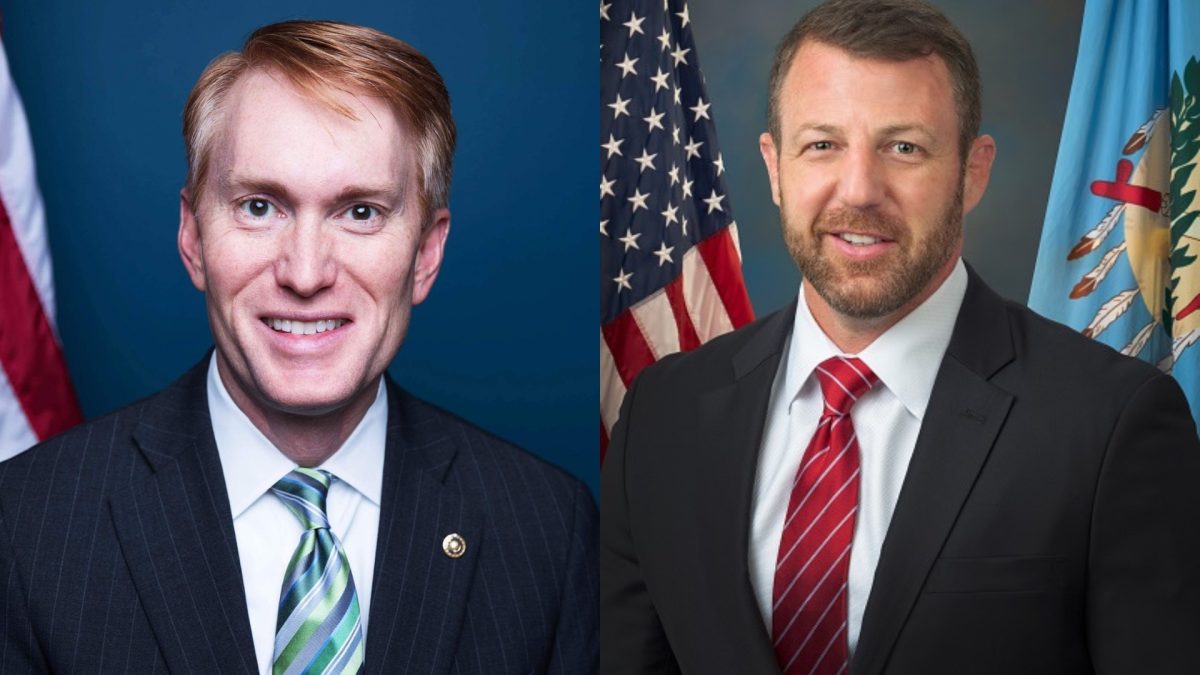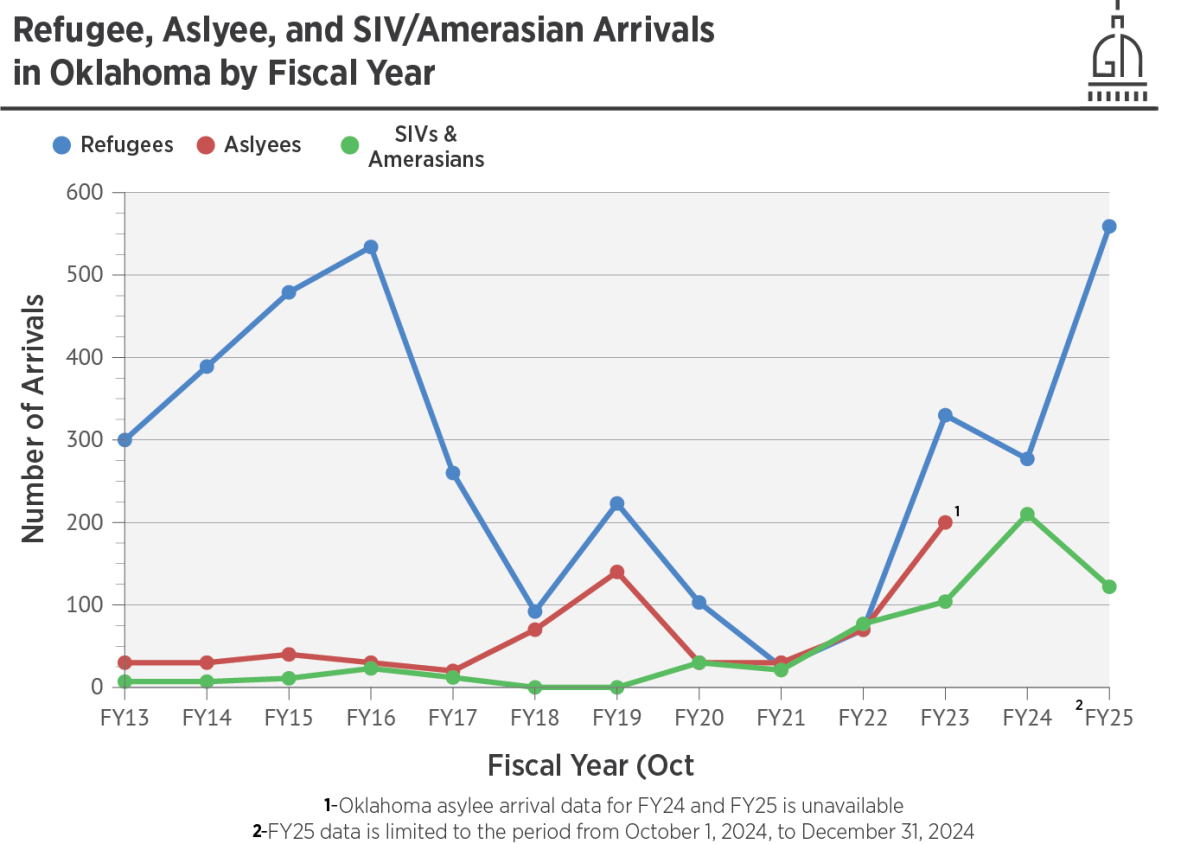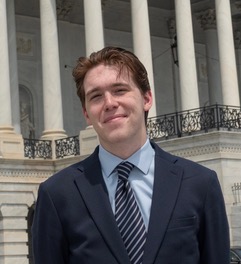WASHINGTON—Oklahoma Senators have assumed leading roles in pushing the “One Big Beautiful Bill” through the Senate, even as internal divisions within the Republican Party threaten to stall its momentum.
After a narrow 215-214 House vote, the Senate last week began deliberations on the Republican-led reconciliation package, the first major legislative undertaking of the 119th Congress. The bill aims to advance key elements of President Donald Trump’s policy agenda, such as making the 2017 tax cuts permanent and overhauling federal programs.
Sen. James Lankford (R-Oklahoma City) and Sen. Markwayne Mullin (R-Westville) have positioned themselves as key backers of the legislation, working to facilitate united GOP support. With both holding leadership roles within the Senate, their ability to unite fellow Republicans is likely to prove crucial in advancing the bill.
“We have to deliver a bill that can get 51 votes in the Senate and get the majority of the votes in the House,” Mullin posted on X. “We’re going to deliver the bill that can pass, get signed into law, and get us away from the Biden policies and move us into Trump-era policies.”
With Republicans holding a Senate majority and reconciliation rules requiring only 51 votes for passage, GOP senators are well-positioned to advance the bill without Democratic support. However, internal divisions threaten its path forward, with some Republicans raising concerns about proposed Medicaid work requirements, temporary tax provisions, and the overall impact on the federal deficit.
Mullin, a member of the GOP deputy whip team and former House member, has consistently supported the legislation, often being referred to as the “liaison” between the House, Senate, and President Trump.
“He’s a tough conservative with an extraordinary understanding of Congress,” said Senate Majority Whip John Barrasso (R-Wyo). “He’s honest and trusted by members in both the Senate and the House. Markwayne is an undefeated fighter for Republicans.”
Given the small margins needed for the bill to pass both chambers, Mullin argues Republican senators ultimately face two options: maintain Biden-era policies or shift decisively to Trump-era priorities.
Lankford and members of the Senate Finance Committee met with Trump and other White House officials last Wednesday to further discuss the bill. In a post on X, Lankford noted that the House “passed a really good bill,” and said the Senate would now work to address their own concerns, such as further spending reductions, while ensuring Trump’s “main priorities” remain intact.
“There’re a lot of other things we’re working to be able to get in the bill to be able to get it done and get it done right, Lankford said after the meeting.
Those opposed to the bill point to a Congressional Budget Office (CBO) report estimating that its tax provisions, particularly the permanent extension of the 2017 Tax Cuts and Jobs Act (TCJA), would add approximately $2.4 trillion to the national deficit. They also argue that the tax provisions’ benefits disproportionately favor high-income earners.
“It isn’t going to be perfect, but it’s going to be good,” Mullin said in an interview with CNBC. “I don’t really think that what we’re going to here in today’s bill is going to balance the budget, but it will in tomorrow’s bill. We’ve got mandatory spending cuts, we’ve got discretionary spending cuts that’re going to go in, we’re gonna have GDP growth, and I honestly do feel like we’re going to be able to balance the budget for the first time since Clinton was in office and I think we can do it in about a year and a half.”
Additionally, both Mullin and Lankford have highlighted the potential consequences if the tax cuts are allowed to expire. Oklahomans would see higher taxes if the “One Big Beautiful Bill” fails to pass and the TCJA provisions expire at the end of 2025, according to the National Taxpayers Union Foundation.
“If we don’t address this issue about the tax bill, every American’s taxes will go up January 1st,” Lankford said. “If you have a giant tax increase in January, it will slow the economy down, it will hurt economic activity, and you’ll actually have less dollars coming in.”
Another major point of contention is the bill’s inclusion of Medicaid work requirements. The proposal would require non-disabled, working-age adults without dependents to meet weekly work, job training, or community service requirements to remain eligible for Medicaid coverage.
A separate CBO report estimates that the proposed changes would result in an increase of 11 million uninsured individuals. Roughly 1 in 4 Oklahomans are Medicaid recipients, according to the Oklahoma Health Care Authority. The Oklahoma senators argue that they are not cutting Medicaid, but ensuring the benefits go to those, as Mullin said, “who actually deserve it.”
“Anybody that qualifies for Medicaid, they’re not gonna see a reduction in benefits,” Mullin said. “All we’re doing is removing the people that are defrauding the American taxpayers out of healthcare.”
Lankford argues that those who do lose coverage under the proposed Medicaid requirements would be encouraged to enter the workforce and transition to employer-provided healthcare.
“It’s not kicking people off Medicaid, it’s transitioning from Medicaid to employer-provided healthcare,” Lankford said. “We think that’s a better option for the taxpayer and, quite frankly, for their families as well.”
Roughly 50% of all private businesses in Oklahoma offer health insurance to their employees, according to the Kaiser Family Foundation.
Gaylord News is a reporting project of the University of Oklahoma Gaylord College of Journalism and Mass Communication. For more stories by Gaylord News go to gaylordnews.net.








